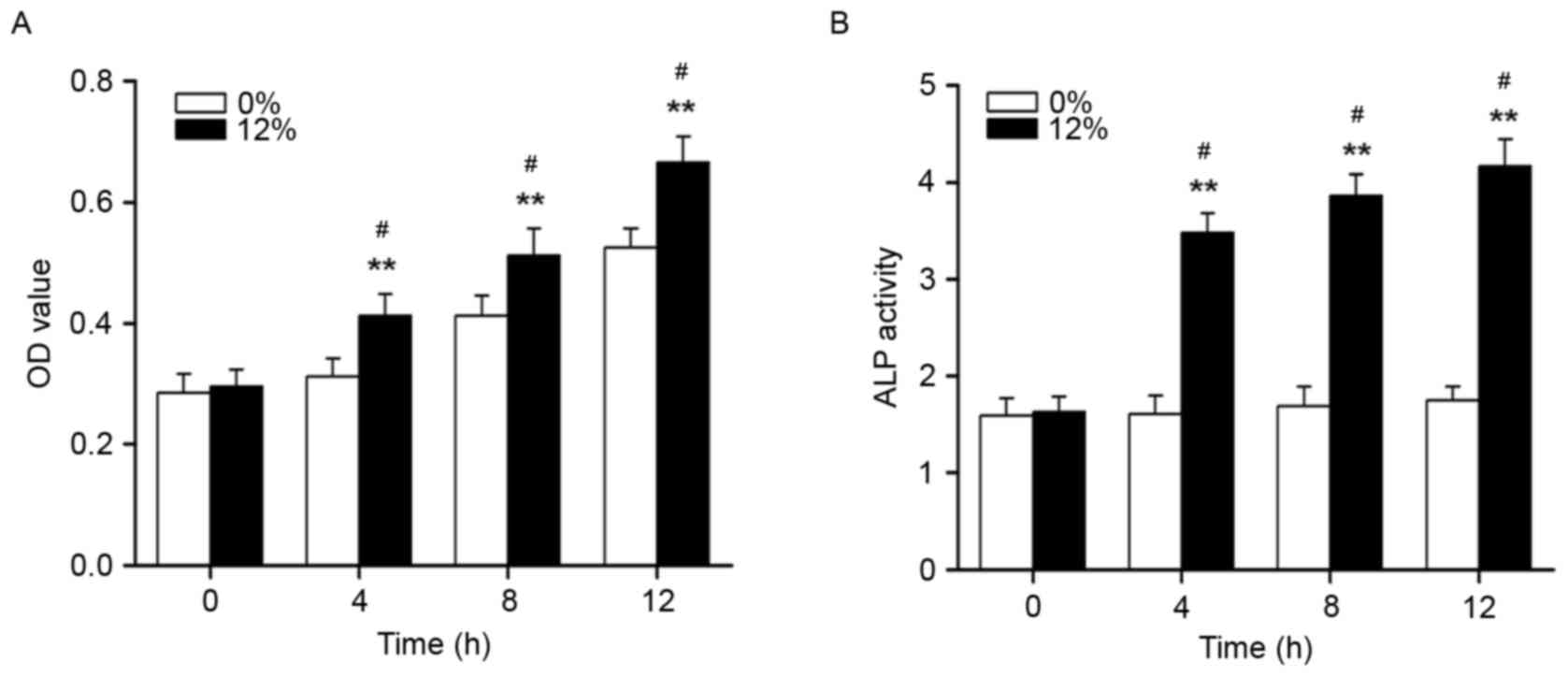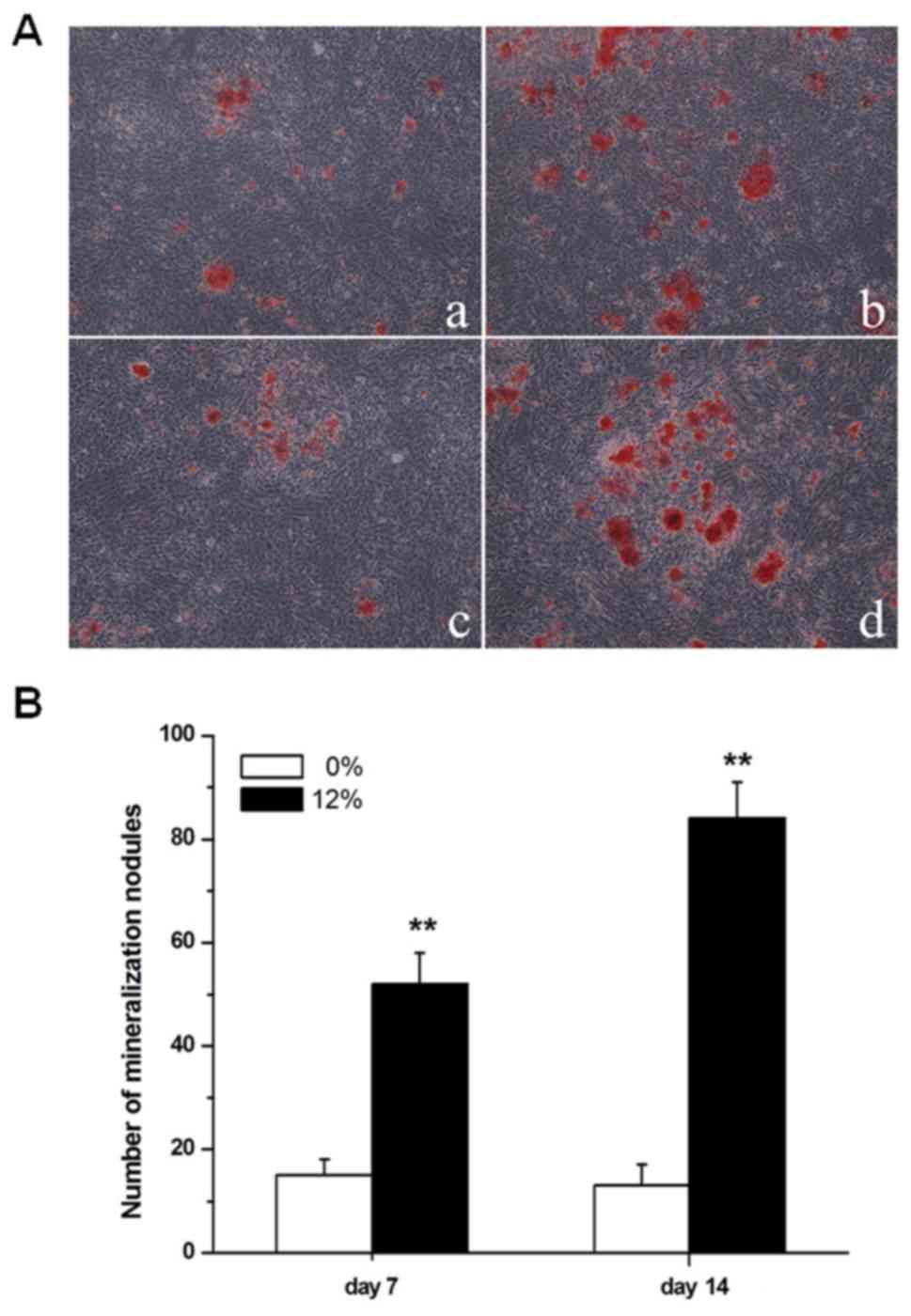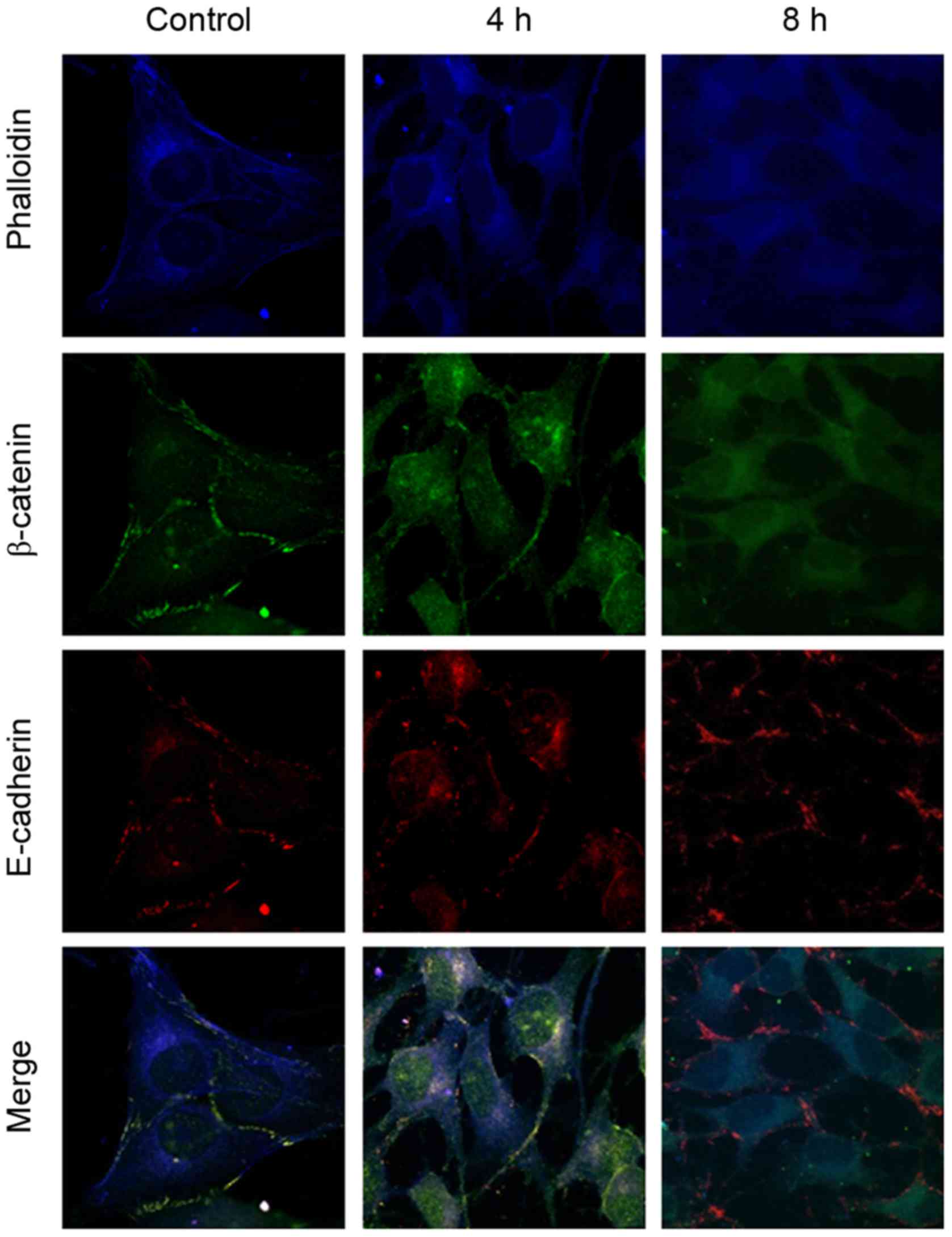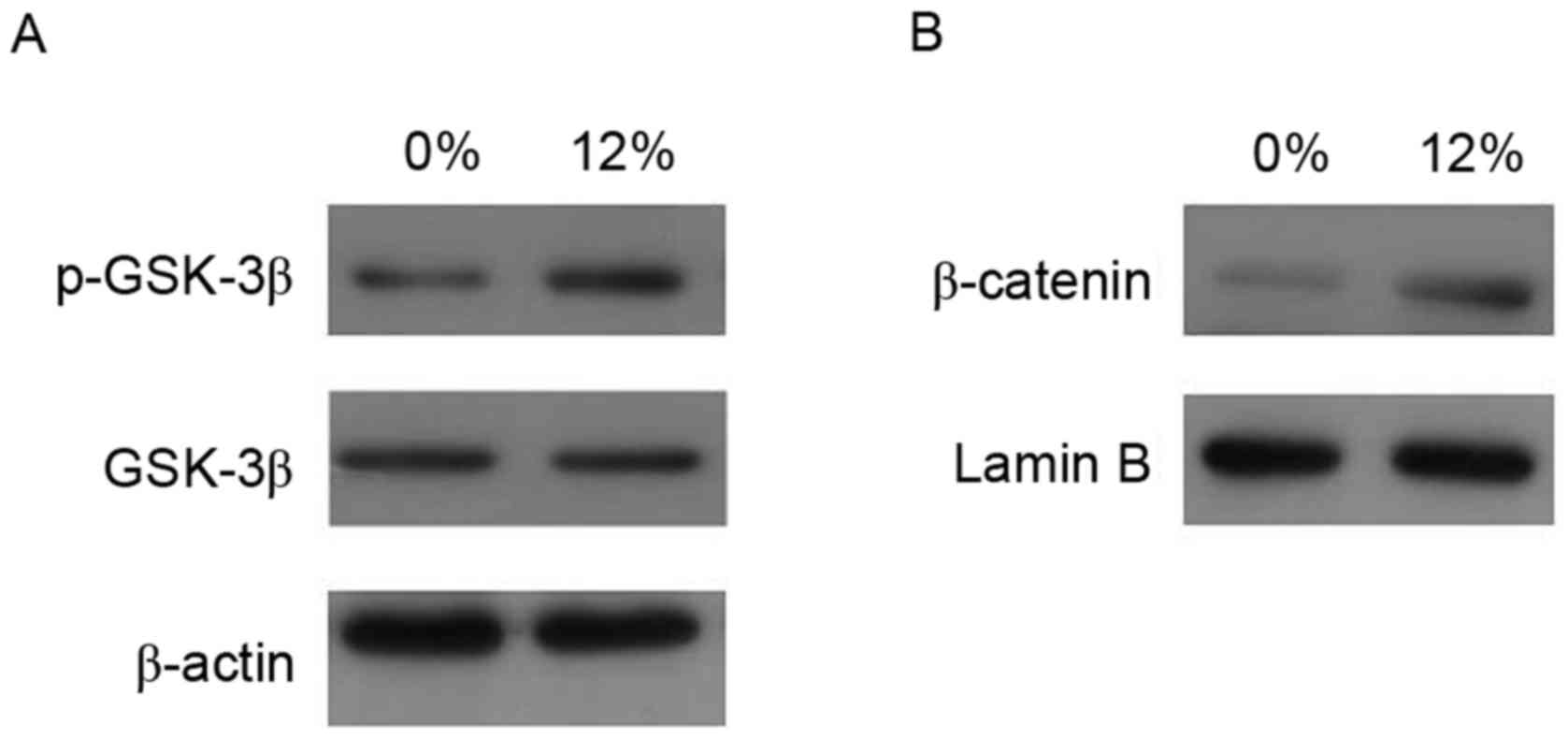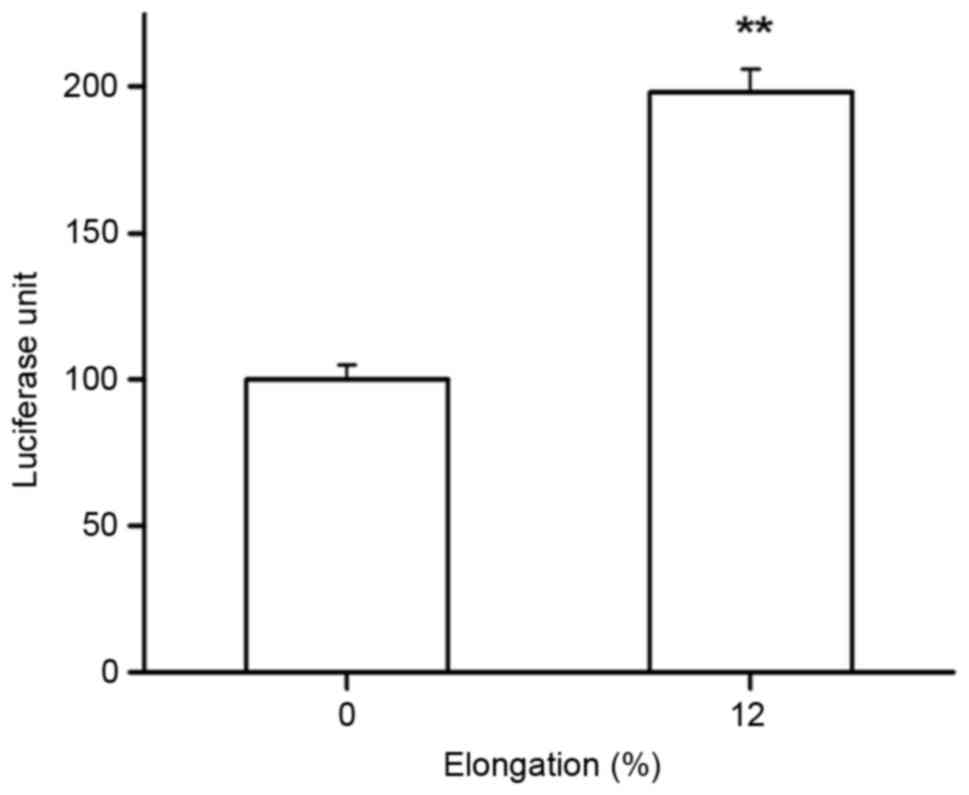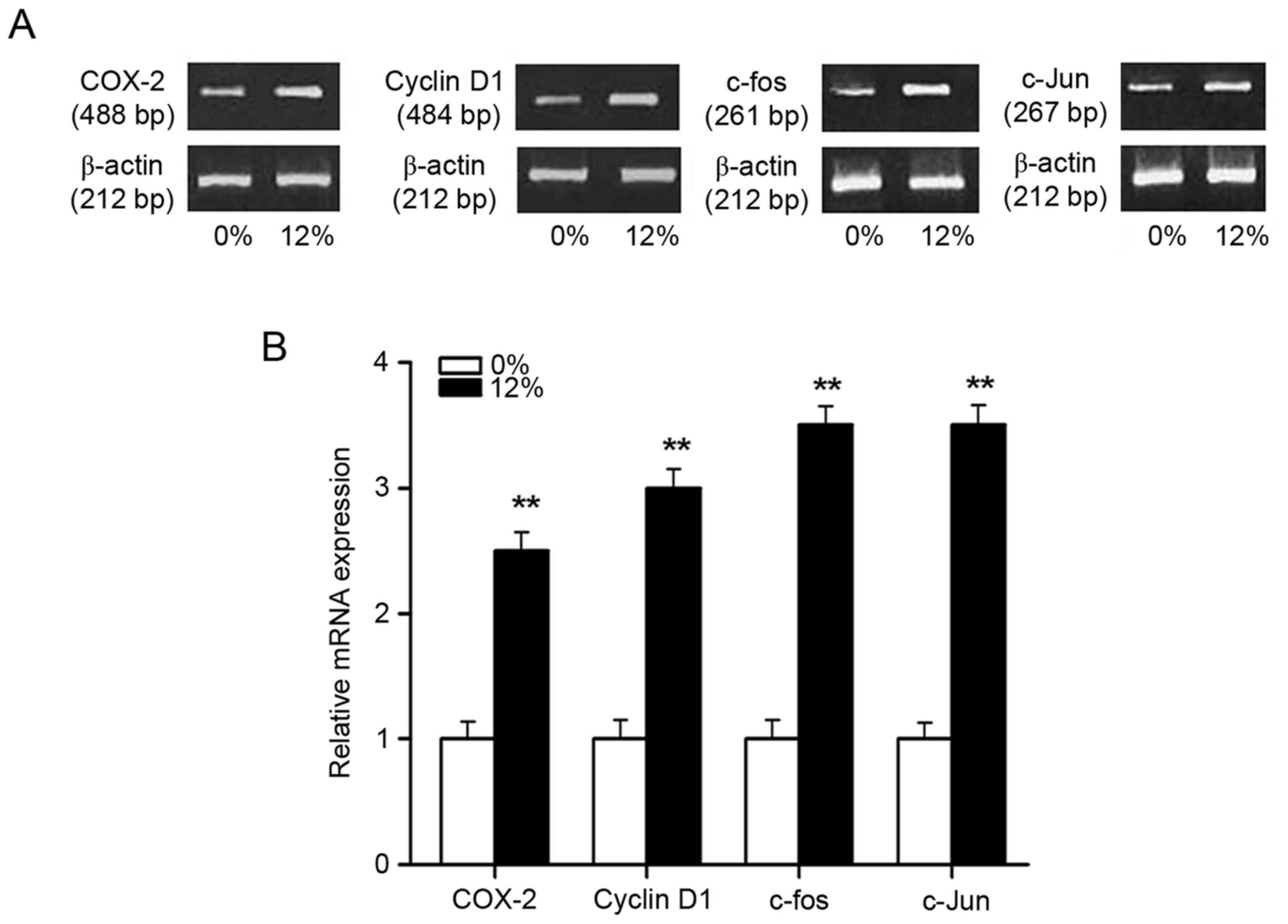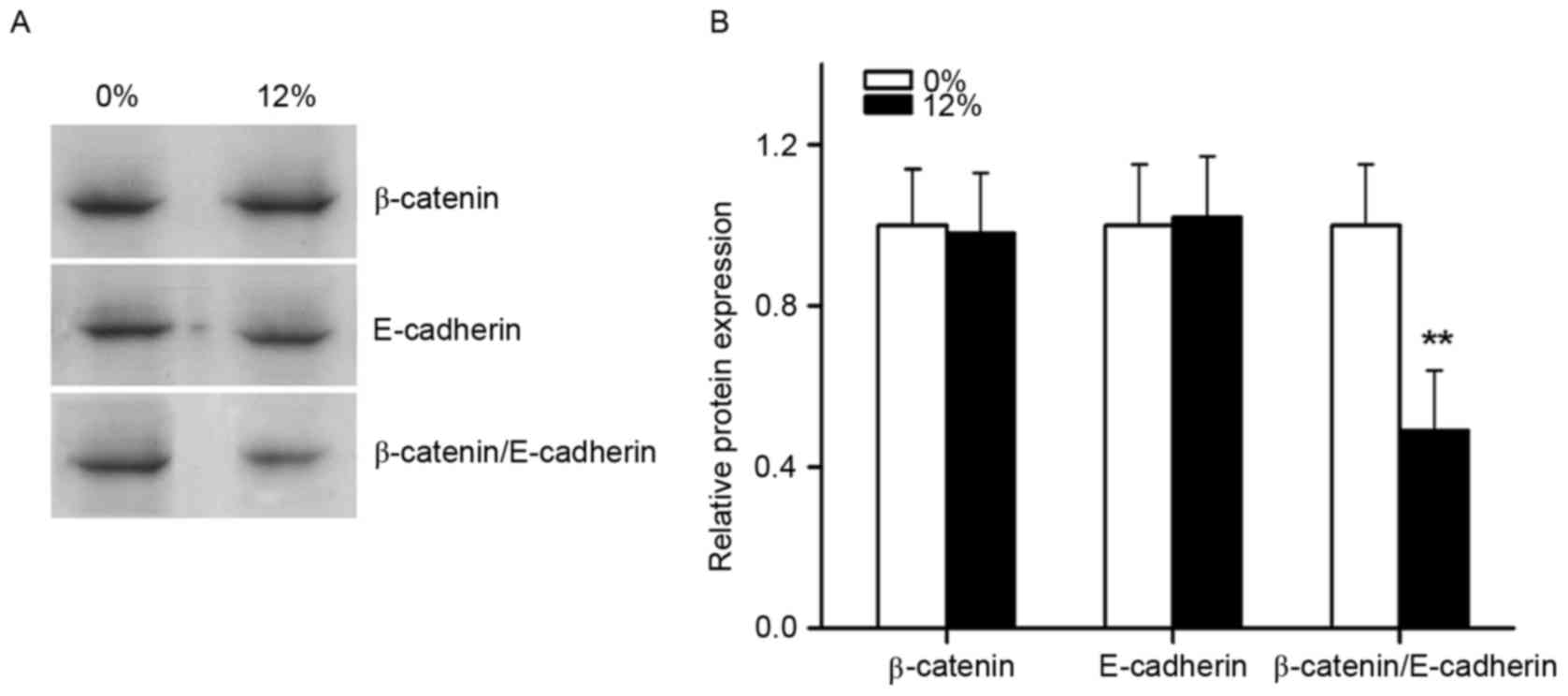|
1
|
Karlsson MK, Johnell O and Obrant KJ: Is
bone mineral density advantage maintained long-term in previous
weight lifters? Calcif Tissue Int. 57:325–328. 1995. View Article : Google Scholar : PubMed/NCBI
|
|
2
|
Lemaire T, Capiez-Lernout E, Kaiser J,
Naili S and Sansalone V: What is the importance of multiphysical
phenomena in bone remodelling signals expression? A multiscale
perspective. J Mech Behav Biomed Mater. 4:909–920. 2011. View Article : Google Scholar : PubMed/NCBI
|
|
3
|
Kim JY, Kim BI, Jue SS, Park JH and Shin
JW: Localization of osteopontin and osterix in periodontal tissue
during orthodontic tooth movement in rats. Angle Orthod.
82:107–114. 2012. View Article : Google Scholar : PubMed/NCBI
|
|
4
|
Eriksen EF: Cellular mechanisms of bone
remodeling. Rev Endocr Metab Disord. 11:219–227. 2010. View Article : Google Scholar : PubMed/NCBI
|
|
5
|
Wallace JM, Rajachar RM, Allen MR,
Bloomfield SA, Robey PG, Young MF and Kohn DH: Exercise-induced
changes in the cortical bone of growing mice are bone-and
gender-specific. Bone. 40:1120–1127. 2007. View Article : Google Scholar : PubMed/NCBI
|
|
6
|
Liedert A, Kaspar D, Blakytny R, Claes L
and Ignatius A: Signal transduction pathways involved in
mechanotransduction in bone cells. Biochem Biophys Res Commun.
349:1–5. 2006. View Article : Google Scholar : PubMed/NCBI
|
|
7
|
Rawadi G, Vayssière B, Dunn F, Baron R and
Roman-Roman S: BMP-2 controls alkaline phosphatase expression and
osteoblast mineralization by a Wnt autocrine loop. J Bone Miner
Res. 18:1842–1853. 2003. View Article : Google Scholar : PubMed/NCBI
|
|
8
|
Jackson A, Vayssière B, Garcia T, Newell
W, Baron R, Roman-Roman S and Rawadi G: Gene array analysis of
Wnt-regulated genes in C3H10T1/2 cells. Bone. 36:585–598. 2005.
View Article : Google Scholar : PubMed/NCBI
|
|
9
|
Caetano-Lopes J, Canhão H and Fonseca JE:
Osteoblasts and bone formation. Acta Reumatol Port. 32:103–110.
2007.PubMed/NCBI
|
|
10
|
Bain G, Müller T, Wang X and Papkoff J:
Activated beta-catenin induces osteoblast differentiation of
C3H10T1/2 cells and participates in BMP2 mediated signal
transduction. Biochem Biophys Res Commun. 301:84–91. 2003.
View Article : Google Scholar : PubMed/NCBI
|
|
11
|
Gottardi CJ and Gumbiner BM: Adhesion
signaling: How beta-catenin interacts with its partners. Curr Biol.
11:R792–R794. 2001. View Article : Google Scholar : PubMed/NCBI
|
|
12
|
Nelson WJ and Nusse R: Convergence of Wnt,
beta-catenin, and cadherin pathways. Science. 303:1483–1487. 2004.
View Article : Google Scholar : PubMed/NCBI
|
|
13
|
Jamora C and Fuchs E: Intercellular
adhesion, signalling and the cytoskeleton. Nat Cell Biol.
4:E101–E108. 2002. View Article : Google Scholar : PubMed/NCBI
|
|
14
|
Smith E and Frenkel B: Glucocorticoids
inhibit the transcriptional activity of LEF/TCF in differentiating
osteoblasts in a glycogen synthase kinase-3beta-dependent and
-independent manner. J Biol Chem. 280:2388–2394. 2005. View Article : Google Scholar : PubMed/NCBI
|
|
15
|
Sakamoto I, Kishida S, Fukui A, Kishida M,
Yamamoto H, Hino S, Michiue T, Takada S, Asashima M and Kikuchi A:
A novel beta-catenin-binding protein inhibits
beta-catenin-dependent Tcf activation and axis formation. J Biol
Chem. 275:32871–32878. 2000. View Article : Google Scholar : PubMed/NCBI
|
|
16
|
Kulkarni NH, Onyia JE, Zeng Q, Tian X, Liu
M, Halladay DL, Frolik CA, Engler T, Wei T, Kriauciunas A, et al:
Orally bioavailable GSK-3alpha/beta dual inhibitor increases
markers of cellular differentiation in vitro and bone mass in vivo.
J Bone Miner Res. 21:910–920. 2006. View Article : Google Scholar : PubMed/NCBI
|
|
17
|
Kato M, Patel MS, Levasseur R, Lobov I,
Chang BH, Glass DA II, Hartmann C, Li L, Hwang TH, Brayton CF, et
al: Cbfa1-independent decrease in osteoblast proliferation,
osteopenia, and persistent embryonic eye vascularization in mice
deficient in Lrp5, a Wnt coreceptor. J Cell Biol. 157:303–314.
2002. View Article : Google Scholar : PubMed/NCBI
|
|
18
|
Vaes BL, Dechering KJ, van Someren EP,
Hendriks JM, van de Ven CJ, Feijen A, Mummery CL, Reinders MJ,
Olijve W, van Zoelen EJ and Steegenga WT: Microarray analysis
reveals expression regulation of Wnt antagonists in differentiating
osteoblasts. Bone. 36:803–811. 2005. View Article : Google Scholar : PubMed/NCBI
|
|
19
|
Glass DA II and Karsenty G: Molecular
bases of the regulation of bone remodeling by the canonical Wnt
signaling pathway. Curr Top Dev Biol. 73:43–84. 2006. View Article : Google Scholar : PubMed/NCBI
|
|
20
|
Reyes L, Eiler-McManis E, Rodrigues PH,
Chadda AS, Wallet SM, Bélanger M, Barrett AG, Alvarez S, Akin D,
Dunn WA Jr and Progulske-Fox A: Deletion of lipoprotein PG0717 in
Porphyromonas gingivalis W83 reduces gingipain activity and alters
trafficking in and response by host cells. PLoS One. 8:e742302013.
View Article : Google Scholar : PubMed/NCBI
|
|
21
|
Yan Y, Sun H, Gong Y, Yan Z, Zhang X, Guo
Y and Wang Y: Mechanical strain promotes osteoblastic
differentiation through integrin-β1-mediated β-catenin signaling.
Int J Mol Med. 38:594–600. 2016. View Article : Google Scholar : PubMed/NCBI
|
|
22
|
Wang H, Sun W, Ma J, Pan Y, Wang L and
Zhang W: Polycystin-1 mediates mechanical strain-induced
osteoblastic mechanoresponses via potentiation of intracellular
calcium and Akt/β-catenin pathway. PLoS One. 9:e917302014.
View Article : Google Scholar : PubMed/NCBI
|
|
23
|
Robinson JA, Chatterjee-Kishore M,
Yaworsky PJ, Cullen DM, Zhao W, Li C, Kharode Y, Sauter L, Babij P,
Brown EL, et al: Wnt/beta-catenin signaling is a normal
physiological response to mechanical loading in bone. J Biol Chem.
281:31720–31728. 2006. View Article : Google Scholar : PubMed/NCBI
|
|
24
|
Manolagas SC and Almeida M: Gone with the
Wnts: Beta-catenin, T-cell factor, forkhead box O, and oxidative
stress in age-dependent diseases of bone, lipid, and glucose
metabolism. Mol Endocrinol. 21:2605–2614. 2007. View Article : Google Scholar : PubMed/NCBI
|
|
25
|
Zhao C, Li Y, Wang X, Zou S, Hu J and Luo
E: The effect of uniaxial mechanical stretch on Wnt/β-catenin
pathway in bone mesenchymal stem cells. J Craniofac Surg.
28:113–117. 2017. View Article : Google Scholar : PubMed/NCBI
|
|
26
|
Boyden LM, Mao J, Belsky J, Mitzner L,
Farhi A, Mitnick MA, Wu D, Insogna K and Lifton RP: High bone
density due to a mutation in LDL-receptor-related protein 5. N Engl
J Med. 346:1513–1521. 2002. View Article : Google Scholar : PubMed/NCBI
|
|
27
|
Roura S, Miravet S, Piedra J, de Herreros
García A and Duñach M: Regulation of E-cadherin/Catenin association
by tyrosine phosphorylation. J Biol Chem. 274:36734–36740. 1999.
View Article : Google Scholar : PubMed/NCBI
|
|
28
|
Norvell SM, Alvarez M, Bidwell JP and
Pavalko FM: Fluid shear stress induces beta-catenin signaling in
osteoblasts. Calcif Tissue Int. 75:396–404. 2004. View Article : Google Scholar : PubMed/NCBI
|
|
29
|
Case N, Ma M, Sen B, Xie Z, Gross TS and
Rubin J: Beta-catenin levels influence rapid mechanical responses
in osteoblasts. J Biol Chem. 283:29196–29205. 2008. View Article : Google Scholar : PubMed/NCBI
|
|
30
|
Chou HY, Howng SL, Cheng TS, Hsiao YL,
Lieu AS, Loh JK, Hwang SL, Lin CC, Hsu CM, Wang C, et al: GSKIP is
homologous to the Axin GSK3beta interaction domain and functions as
a negative regulator of GSK3 beta. Biochemistry. 45:11379–11389.
2006. View Article : Google Scholar : PubMed/NCBI
|
|
31
|
Brady RT, O'Brien FJ and Hoey DA:
Mechanically stimulated bone cells secrete paracrine factors that
regulate osteoprogenitor recruitment, proliferation, and
differentiation. Biochem Biophys Res Commun. 459:118–123. 2015.
View Article : Google Scholar : PubMed/NCBI
|
|
32
|
Adkison JB, Miller GT, Weber DS, Miyahara
T, Ballard ST, Frost JR and Parker JC: Differential responses of
pulmonary endothelial phenotypes to cyclical stretch. Microvasc
Res. 71:175–184. 2006. View Article : Google Scholar : PubMed/NCBI
|















